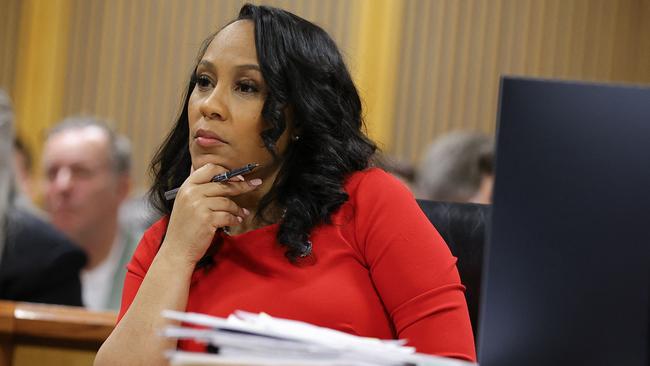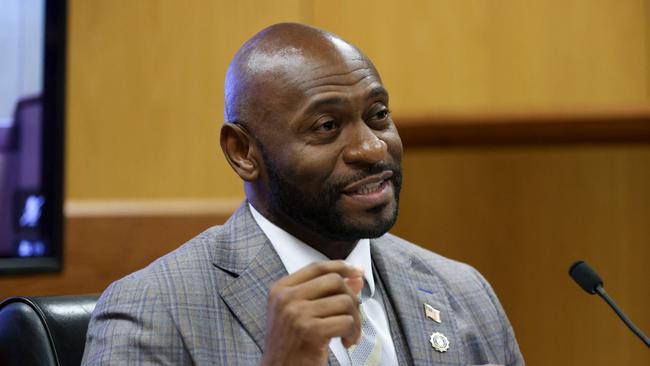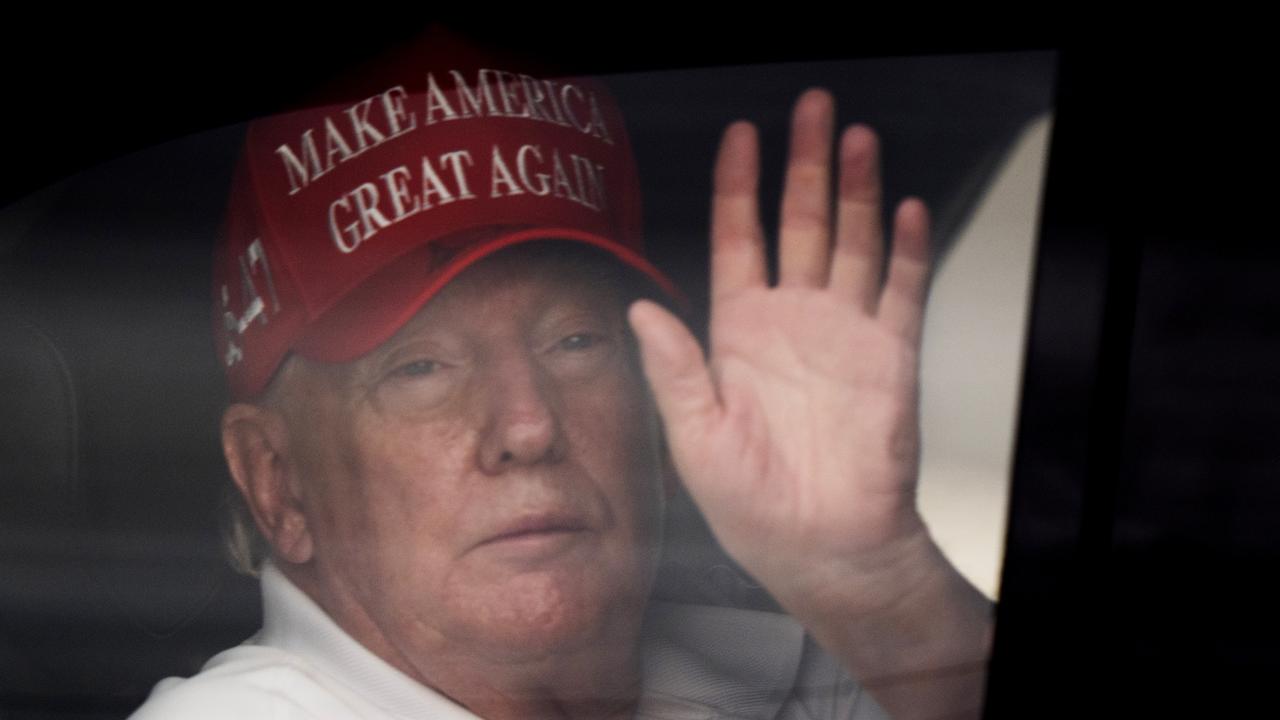Election-interference case hangs in the balance
Georgia’s election-interference case against Donald Trump could be doomed after an appeals court removed a district attorney from the case.

A Georgia appeals court removed Fulton County District Attorney Fani Willis from her election-interference prosecution against Donald Trump and 14 other defendants, saying her romantic relationship with a top deputy disqualifies her entire office, a decision that could doom the case.
The court, in a 2-1 ruling, said a trial judge erred by allowing Ms Willis to remain on the case so long as her former romantic partner, Nathan Wade, an outside lawyer she hired to lead the trial team, resigned.
“This is the rare case in which disqualification is mandated and no other remedy will suffice to restore public confidence in the integrity of these proceedings,” Judge Trenton Brown wrote for the majority.
The panel stopped short of throwing out the prosecution entirely, saying dismissal was too extreme of a sanction.
Still, the ruling could spell an end to the case. Under Georgia law, the prosecution will now be referred to a state board, which can decide whether to reassign it to another prosecutor. The sprawling, contentious case may struggle to find a new home with a prosecutor who has the resources or political will to carry it forward.
“It’s extremely rare for an entire office to be disqualified,” said former Georgia prosecutor Chris Timmons. “That just doesn’t happen. I’ve never seen it.”
Mr Trump’s lawyer Steve Sadow called the ruling “well-reasoned and just”.
“This decision puts an end to a politically motivated persecution of the next president of the United States,” Mr Sadow said.
Ms Willis last year charged Mr Trump and 18 others, including his former advisers Rudy Giuliani and Mark Meadows, with participating in a criminal enterprise to subvert Joe Biden’s 2020 election victory. They all pleaded not guilty, but four co-defendants later reached plea deals with Willis’s office, including former Trump legal advisers Sidney Powell and Jenna Ellis.

A spokesman for Ms Willis didn’t respond to a request for comment. In a brief court filing, Ms Willis said she would ask the Georgia Supreme Court to review Thursday’s decision.
The push to disqualify Ms Willis began in a bombshell filing last January by Ashleigh Merchant, a lawyer for co-defendant Mike Roman, revealing the relationship between Ms Willis and Mr Wade. “We regret that Ms Willis did not do the right thing and voluntarily recuse herself,” Ms Merchant said on Thursday.
Ms Willis, a Democrat who was re-elected this year, hired Mr Wade to work on the case in 2021, when it was still in an investigative phase. He remained in private practice, and billed about $US250 an hour for his work. Mr Wade served as lead counsel, often arguing for Ms Willis’s office in court, and received more than $US650,000 in compensation.
Both Mr Wade and Ms Willis have said their romantic ties ended in the summer of 2023, and that they weren’t dating when she brought him onto the prosecution team in 2021, though a former Willis friend disputed that claim in sworn testimony.
Ms Merchant alleged Ms Willis and Mr Wade benefited financially from Mr Wade’s work, including by taking expensive vacations together. Ms Merchant alleged that was a conflict of interest that could have influenced prosecutorial decisions.
The ethics battle derailed the case for most of 2024 and produced courtroom drama that captivated the nation, with cable news networks broadcasting live coverage of a hearing that probed the Willis-Wade relationship. The district attorney took the witness stand in her own defence, and sparred with Ms Merchant, who questioned her under oath.
Ms Willis said defence lawyers had lied repeatedly and used innuendo to suggest she had engaged in impropriety when none existed.
“You’re confused, you think I’m on trial,” Ms Willis told Ms Merchant.
Even if another Georgia prosecutor picks up the case, other hurdles remain. There are open legal questions about whether the Trump prosecution can go forward after the Supreme Court ruled in July that he had broad immunity for acts he took while in office. And it is a virtual certainty that courts wouldn’t allow the president-elect to be on trial while he serves his second term in office.
A dissenting judge Thursday said the panel had no sound basis to overturn the trial judge’s decision to allow Ms Willis to remain.
“Where, as here, a prosecutor has no actual conflict of interest and the trial court, based on the evidence presented to it, rejects the allegations of actual impropriety, we have no authority to reverse,” Judge Benjamin Land wrote.
The Wall Street Journal



To join the conversation, please log in. Don't have an account? Register
Join the conversation, you are commenting as Logout